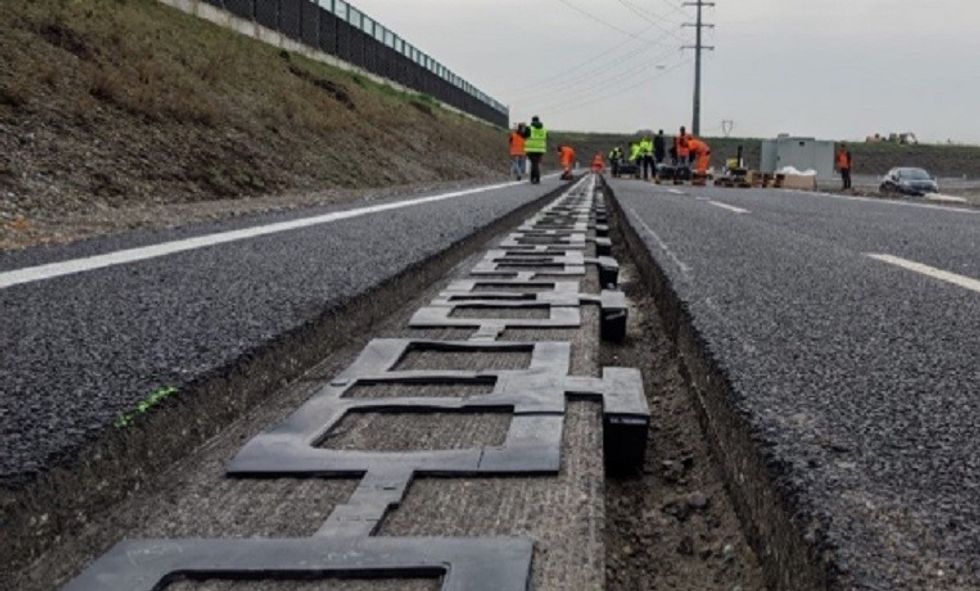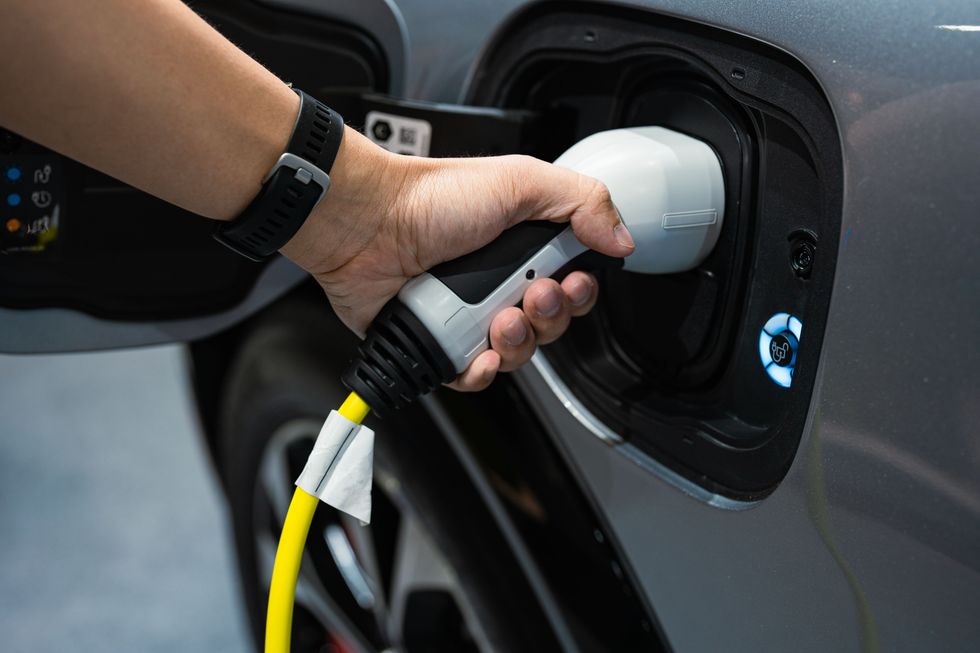Electric car owners handed major lifeline by revolutionary technology that charges moving vehicles

Metal coils in the road allow drivers to charge while moving
Don't Miss
Most Read
Drivers will soon be able to charge their electric vehicle while on the road as new technology gets trialled in the Midlands.
Coventry University has unveiled new technology which enables drivers to recharge their vehicles while moving along power-enabled roads.
The technology was proposed by the Key Cities Innovation Network as part of plans to help the local communities achieve vital net zero targets.
The charging innovation uses dynamic wireless transfer technology to establish an automatic connection between the vehicles and metal coils fitted below the road surface to recharge the batteries as they pass over.
Do you have a story you'd like to share? Get in touch by emailing motoring@gbnews.uk

The chargers are currently being trialled out on a section of Kenilworth Road in Coventry
|COVENTRY UNIVERSITY
Funded by National Grid Electricity Distribution the mobile charging scheme is currently being focused on a section of Kenilworth Road at its junction with the A45.
The stretch of road being trialled is hoped to attract Government support and funding for the next stages of more areas.
Councillor Jim O’Boyle, from Coventry City Council, said: “Innovation will be one of the ways we tackle the causes and consequences of climate change, and innovation is something we are very good at here in Coventry, especially in the transport sector which is in our DNA.
“It is great to be collaborating with Coventry University and Cenex to show how roads can be used to charge vehicles as they pass by and solutions like this will enable the transition to electric vehicles to happen more quickly.”
The Government has already installed almost 60,000 public chargepoints across the UK, according to the Zapmap database.
Despite this, motorists have complained about the price of electric vehicles as well as the need for more chargers as numbers are still lagging behind Government targets.
Kevin Vincent, director at the Centre for Connected and Autonomous Automotive Research, explained that Dynacov demonstrates the benefits of universities and local authorities sharing a common vision for the “sustainable future”.
More companies are trying to extend their EV charger offerings to help combat costs and encourage more drivers to make the switch to electric.
Most recently, Connected Kerb unveiled its take on pavement charging which it estimates will save drivers up to £1.5billion annually.
The smart charging scheme has already been rolled out in over 6,000 charge points, with 4,000 more set to be deployed this year.
Ben Boutcher-West, chief digital officer at Connected Kerb, warned that public smart charging is the “catalyst” needed to create a “fairer, greener, and cheaper” charging network.
He added: “We know that just under two-thirds of people in the UK don't have access to a home charger, which is why we’re committed to levelling the playing field between those who can access smart charging and those who can’t.”
LATEST DEVELOPMENTS:

Government has installed almost 60,000 charge points already
| GETTYVarious trials around the UK have attempted to introduce wireless charging features to roadsides to help taxi services, including in Coventry.











